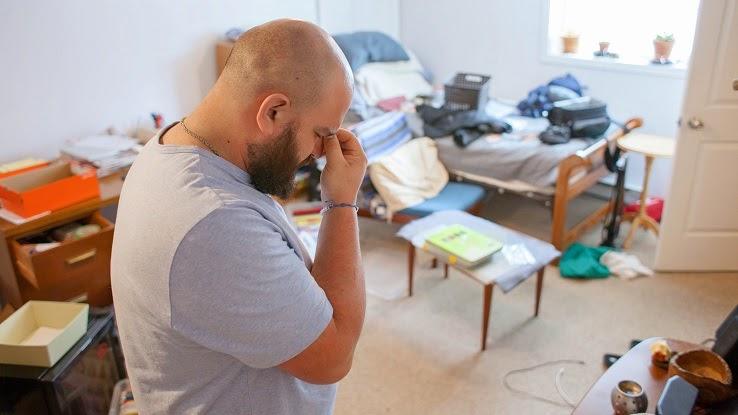How Much Does It Cost to Rent a Small Camper

There are plenty of costs associated with starting a new lease. You'll likely encounter moving expenses, security deposits, pet deposits and your first month's rent, among other things. While it's true that moving isn't always the easiest event — physically, mentally or financially — there's one more cost you might seriously want to consider incurring: the purchase of a renters insurance policy.
It's true that renters insurance is an added expense, but it offers helpful protection and peace of mind. Some landlords even require you to prove you've bought renters insurance before you sign your lease. If you have the option to purchase one of these policies, it's important to understand what they are, how to evaluate them and what ultimately makes them a worthy expense.

Your landlord has homeowners insurance, and potentially even a landlord-specific form of insurance, to protect the property itself, but the homeowners insurance company typically considers a renter to be a third-party occupant and doesn't cover the renter or their belongings. If the renter has expensive furniture in the home and the home gets destroyed by a fire, the renter, not the homeowner, will be responsible for replacing that furniture. The homeowner's insurance policy will likely replace structural elements of the home, but not the contents within it that don't belong to the owner.
Renters insurance covers three different elements of your life as a renter. The first is the personal property that belongs to you. This can include your clothes, your furniture and any other belongings you've brought into the property — everything inside the home that belongs to you but isn't the home itself or the semi-permanent appliances within it. The second is your liability, which is coverage that pays to repair damages you cause to the property and sometimes pays for medical bills your guests incur if they injure themselves. The third element is other living expenses, which you might need to pay if you must move into a hotel or other facility while your rental home is undergoing repairs.
Many policies also include a deductible that you must pay before your insurance will cover costs. Policies also have limits, meaning they won't pay out any amount of money over the maximum level of coverage you've selected.
Types of Renters Insurance

There are two basic types of renters insurance. Replacement cost value policies pay a renter enough to replace or repair items that have been damaged during a covered event. This type of policy isn't concerned with the purchase price or current value of the item that's lost. Rather, it gives you enough to replace that item with a brand-new version. This is the more expensive type of renters insurance. The lower-cost type of renters insurance is an actual cash value policy, which pays you the actual current cash value of any items that are lost.
As an example, suppose Erica is a renter whose home has just been broken into. Her renters insurance policy covers a purse that she paid $1,500 for 10 years ago that was stolen during the burglary. With a replacement cost value policy, Erica may get paid $1,100, the cost of buying an equivalent new purse from the same brand today. If Erica has an actual cash value policy, she might only get paid $600, which is today's depreciated value of the purse she had.
What Does Renters Insurance Cover?

The business of paying for everything a person owns can become rather expensive. That's why renters insurance policies often have strict limitations and typically have different types of limits.
Like other types of insurance, these policies can have total limits to the sum of money they'll ever pay a policyholder for personal property, so you should carefully consider the cost of your belongings when deciding on a policy. If you need to make several claims, you may reach the maximum lifetime dollar limit of your policy — and it'll no longer pay for property you lose in the future. There are also limits in renters insurance for certain types of property. Jewelry is one area that commonly receives a limit; a renters insurance policy may not be the best method of insuring a $20,000 necklace.
Remember that your landlord's homeowners insurance considers you as the renter to be a third party and therefore doesn't cover your belongings or damages that result from certain types of activities you might engage in. If a renter invites a guest over, and that guest trips over a throw rug, the renter can be held liable for the cost of the guest's medical treatment. If a renter's child accidentally runs a bike into a neighbor's car, the renter can be held liable for the repair costs. Dog bites can also lead to liability for a renter. To protect yourself from the cost of these expenses, always opt for a policy that offers liability coverage.
As mentioned, another important aspect of renters insurance is additional living expenses. These cover the cost of living in a hotel and eating out at a per diem rate if you have to leave your home for some (covered) reason. Especially in apartment complexes, this can be a great add-on to renters insurance policies. If another tenant in your building has bed bugs, for example, you may have to move out temporarily while the building is treated. If mold is found in your rental house, you may have to move out during the remediation process. Renters insurance can help to cover certain costs you incur while (and because) you can't live in your rental home.
Is Renters Insurance Worth the Cost?

Some renters insurance policies offer $100,000 or more in liability coverage. Depending on policy terms and limits, renters insurance can cover all or a portion of the cost of replacing your belongings in the event of a fire, burglary, flood or other disaster. Especially in a case in which you're liable for damage to another person or property or you experience a loss of your own property, renters insurance can be extremely valuable.
Renters insurance is an annual policy — meaning it lasts for one year before you need to renew it. However, you can typically choose to pay a monthly premium (the cost for coverage) or pay for six months at a time. The cost of renters insurance is based both on the state you live in and on the specific coverage that you choose. On average, the most expensive renters insurance policies in the nation cost $22 per month. That's equivalent to or less than the cost of eating out once per month for most renters. And it's a small price to pay for coverage that can keep you from paying thousands of dollars out of pocket to replace damaged possessions.
A renter who opts not to carry a renters insurance policy will need to cover the out-of-pocket costs for any loss of personal property or damage for which they're liable. Suppose your rented home is destroyed by a fire. The combined cost of moving and replacing all of your belongings can be a serious financial setback, unless you have insurance.
As long as you pay close attention to choosing a policy wisely, you'll find that renters insurance is worth the cost. The price is negligible considering that you can save thousands or even hundreds of thousands of dollars by protecting yourself and your things with a policy. Remember that your landlord's homeowners insurance policy offers zero protection and that renters insurance may be the most cost-effective method of protecting your assets.
MORE FROM ASKMONEY.COM
How Much Does It Cost to Rent a Small Camper
Source: https://www.askmoney.com/insurance/renters-insurance-worth-cost?utm_content=params%3Ao%3D1465803%26ad%3DdirN%26qo%3DserpIndex